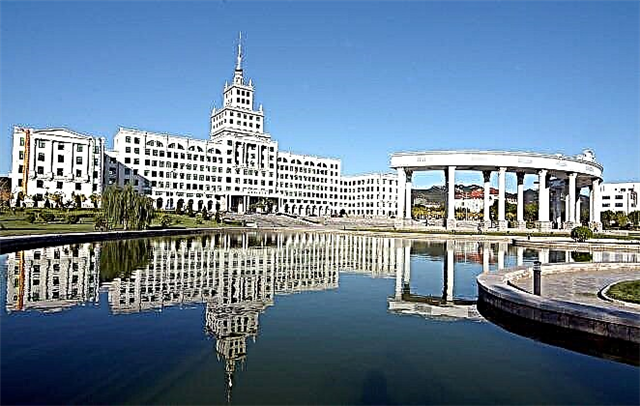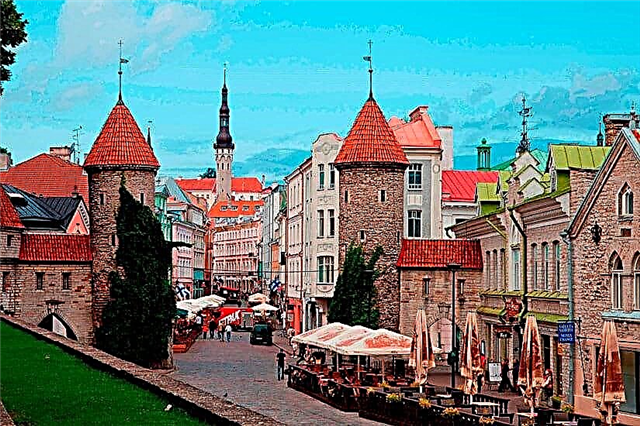The Kingdom of Spain is a sunny country with amazing nature, rich architecture and a high standard of living. Many people dream of living in this country, developing a business, or at least spending their holidays here. If your relatives, acquaintances or potential life partner legally live in Spain, you have the opportunity to visit the kingdom as a guest and meet people close to you. To do this, you will need a visa by invitation to Spain. Let's try to figure out how to get an entry permit to this hospitable state.
What is a visitor visa and invitation
A visitor visa to Spain is required if you intend to visit your relatives, friends, work colleagues or just acquaintances who legally reside or own real estate in this country and have invited you to visit.
That is, a visitor visa is a document confirming the right to enter a foreign country on the basis of a letter of invitation from the receiving party. Guest Schengen is valid for a maximum of 1 year and entitles a foreigner to travel within the European Union.
An invitation is a letter from the receiving party included in the package of documents required for the issuance of a guest visa. Its design is handled by a relative or acquaintance living in Spain.
The document is drawn up in any form on an A4 sheet, while it must be typed, not handwritten. At the end of the invitation, the signature of the receiving person is put.
A ready-made invitation letter can be sent to the invitee by email, fax or in an envelope with a track number using the services of the state postal service.
Visa invitations: types and features
On the official website of the Spanish Consulate in Russia in the section "Consular services" in the Russian version of the page, options for invitation letters are considered.
A guest from Russia, Belarus, Ukraine and other countries can be invited to Spain:
- citizens of the kingdom;
- foreigners holding a residence permit in Spain (residents);
- Spanish property owners.
If a Russian is the owner of an apartment anywhere in Spain, an invitation letter from him as the owner of real estate to the spouse or children under the age of 21 is not drawn up.
The host can be not only relatives, but also business partners, acquaintances who legally stay in the kingdom.
There are the following types of invitation letters:
- a resident of Spain (a citizen or a person with a residence permit) wishes to host a foreigner from a country that has signed an agreement with Spain on simplified entry into the kingdom. An agreement on simplified entry has been signed between the Russian Federation and Spain, so a Russian citizen does not need to certify the invitation with the Spanish police or with a notary;
- a Spanish citizen or a person who has received a residence permit in the state invites a guest from a country that has not concluded an agreement with the Kingdom of Spain on simplified entry. In this case, the applicant must report to the Spanish police and draw up an invitation letter. To do this, the inviting person should contact the commissariat at the place of residence and receive an invitation form in his name.
The essence of the invitation is to assign the responsibility of taking care of the guest (food, accommodation, financing) to the inviting party, and not to the state.
How to issue an invitation for a guest visa
It is entirely up to the receiving party to issue the invitation, so the inviter will have to spend time and money on it.
Regardless of the option of issuing an invitation (through the police or without their participation), the inviter is obliged to provide the following information to the Spanish Embassy:
- about yourself: full name, date of birth, country of origin, citizenship, DNI number, passport or residence permit, address of actual place of residence, extract from the real estate register, timing and purpose of guests' arrival, degree of relationship with the invitee or proof of friendship, acquaintance, full name of the guest's children, contact number.
- about the guest: full name, country of origin, citizenship, passport number, place of residence in the kingdom.
The detailed information described in the invitation form will help the visa service to identify the host and confirm his ability to take care of the guests.
The official invitation is sent from Spain to the address of the invitee. Together with him, the following documents are enclosed in the envelope:
- a certificate of the financial position of the inviting party to confirm the ability to support the guest (for example, a bank statement on the availability of funds in the account);
- a notarized copy of a Spanish passport or residence permit;
- copy of the registration stamp;
- an extract from the register of real estate and a copy of the visa (if an invitation to Spain is issued from the owner of the real estate);
- information about the guest (relationship, degree of acquaintance, history of friendship). Joint photographs can be evidence of friendship or acquaintance.
If the invitee and his family will live separately (not with their host relative or friend), a certificate confirming a hotel reservation or a rental agreement is attached to the package of documents.
In order to clarify or obtain additional information, the host country may be invited to the local visa service in Spain.
After paying the state fee and approving the invitation request at the visa center, the guest is sent an invitation to Spain from a private person (original) and other documents.
The invitee, having received a package of papers from Spain, supplements it with documents collected on his own and goes to the consulate to apply for a guest visa.
How to get a visa by invitation to Spain
To obtain a guest visa, you must prepare a standard set of documents. Find out more about how to apply for a visa to Spain.
To obtain a visa stamp, you must fill out an official application form on four pages. The document contains information about the guest and children recorded in his passport. The form is filled out in English or Spanish, so you should study the sample document in advance in order to answer the questions of the questionnaire without errors.
In addition, the applicant must prove the ability to support himself during his stay in Spain at the rate of 57 euros per day. You can substantiate your financial situation by presenting a bank statement or a certificate from work.
An application for a visitor visa is submitted by the invited person to the Consulate General of Spain in Moscow or a visa center in any region of Russia. The addresses of the visa services can be found on the official website of the Spanish Visa Application Center in the "Contact Information" section.
In order not to stand in line at the consulate and to get a visa faster, sign up for the preliminary submission of documents online on the website of the visa service.
How much does it cost and how long does a visitor visa to Spain last?
An application for a guest Schengen is considered by the Consulate of Spain in Russia from 10 to 30 days. Each application is discussed individually, so the processing time may vary.
If you do not have time to wait, apply for an urgent visitor visa worth 4,886 rubles with a service fee for visa center services in the amount of 1,078 rubles and a consular fee of 70 euros.
For stay in the kingdom, at the invitation of relatives or relatives, the consulate issues visa stamps of category C:
- short-term Schengen (from 1 to 90 days) for citizens of states parties to the agreement on simplified entry into Spain - the cost of 2,443 rubles;
- short-term visitor visa for children from 6 to 12 years old - price of 2,443 rubles;
- visa stamp for 90 days of stay for children from 0 to 6 years old - free;
- short-term visa (up to 90 days) for citizens of countries not participating in the agreement with Spain on simplified entry into the country - the price is 4,188 rubles.
The consular fee for each application for registration of a guest Schengen is 35 euros.
If a Schengen visa is issued for six months or 1 year, you have the right to stay in any EU country for no more than 90 days within a 180-day period.
Conclusions
To successfully issue an invitation and a guest visa, you must familiarize yourself with the requirements of the visa center and follow them, as well as collect a full package of mandatory documents. Contact the consulate or visa service in advance in order to calmly get the Schengen and go to visit your relatives in Spain.











